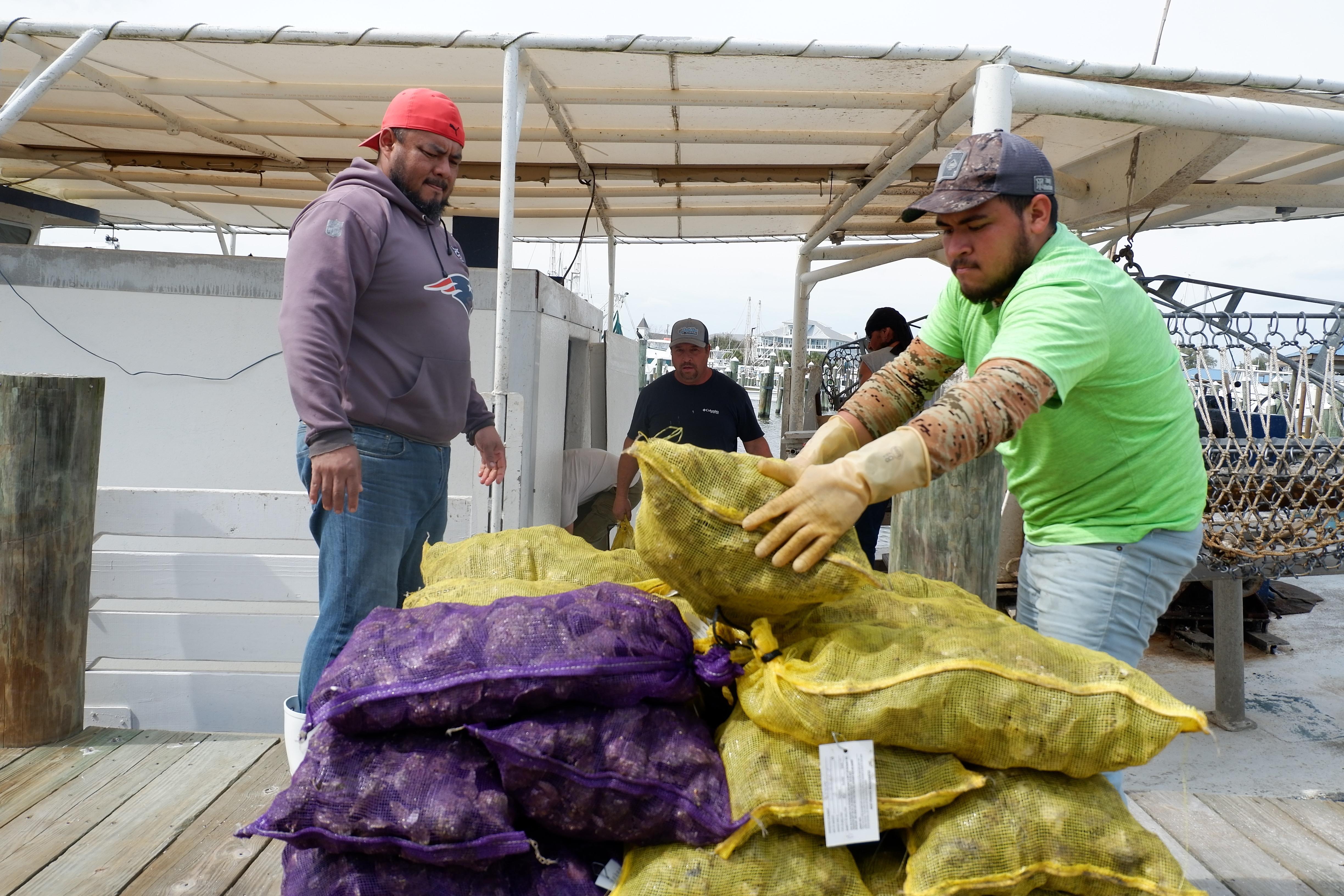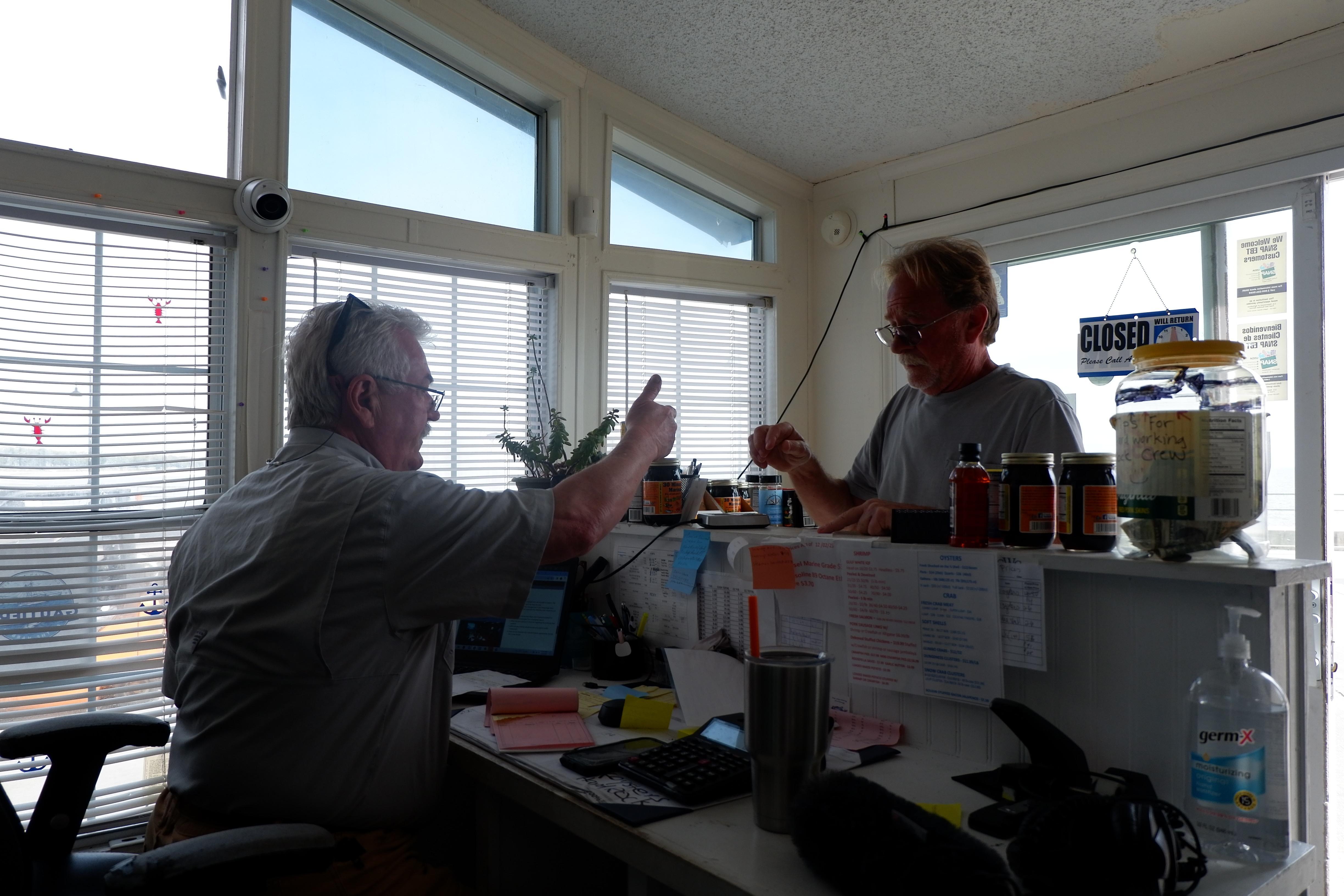On a warm May afternoon at the Pass Christian Harbor, most describe the Mississippi Sound’s oyster fishery as suffering a slow death by three cuts: 2005’s Hurricane Katrina, the 2010 BP Oil Spill and the 2019 double opening of the Bonnet Carre Spillway.
The reefs of the western Mississippi Sound, especially those just off the shores of Pass Christian, were once among the largest in the world, and attracted immigrant groups from across Europe, the United States and later southeast Asia.
But over the course of more than four months in the spring of 2019, an unprecedented 6 trillion gallons of Mississippi River floodwaters, bound for New Orleans, were redirected down the spillway beyond into the Mississippi Sound, reducing salinity levels in the estuary to near-zero and killing off all of its wild oysters.
Hundreds of bottlenose dolphins and sea turtles washed up dead on Mississippi beaches, and scores of other commercial fisheries, like shrimp, red snapper and crab were also virtually shut down as a result.
The region’s larger economy, from towering casinos, barrier island ferries and restaurants – all inextricably tied to commercial fishing operations – were dealt significant blows, and the impacts still define the region today.
But just as the Mississippi Sound’s historic oyster reefs have begun recovering – and fishermen look to recoup years of lost landings and income – a state Senate-led plan to privatize up to 80% of those reefs has fishermen fearing their livelihoods, and generations of cultural heritage, may be on the brink.
“There's so many multi-generational families that have ties to the seafood industry in one way or another. They've got family members that are involved in the industry, and it would be devastating to lose these reefs, because our oyster fishermen have weathered so much over the years throughout these disasters,” said Ryan Bradley, executive director of the non-profit Mississippi Coastal Fisheries United and a commercial offshore fisherman.
In today’s coastal Mississippi fishing communities, much like those for generations prior, fishermen split their efforts between seasons – oysters in the wintertime and shrimping in the summer – shaped over decades into a seamless economic model that was one of the region’s first.
“So to lose that income ability through our public oyster reefs, it would be detrimental, have a cascading effect, and likely put out of business many of our shrimpers as well,” Bradley told MPB News.
Ryan himself is only the latest in a long line of Bradleys who’ve fished the Sound and nearby Gulf – for sustenance, work, and recreation that approaches cultural expression.
He says the proposal to privatize the oyster reefs, long in the works, appears to run counter to the socio-economic reality of Coastal Mississippi.
In other ways, it would be a paradigm shift not only for the fishery and those who work it, but also for their ability to market freshly caught seafood to consumers – both nearby residents and tourists.
“Under the public model we can go out and harvest oysters, and we have the right to sell those oysters to anybody that we want. We could sell them to individual consumers that walk up to the docks, and we can sell them to dealers here in the harbor,” he said.
“Under the private model, that private leaseholder has sole authority over those oysters -- they get all the oysters and you have no right to sell those oysters anywhere. So that's going to make it harder for the public to be able to go right down to the boat and buy directly off the boat.”





_edited_3.jpg)